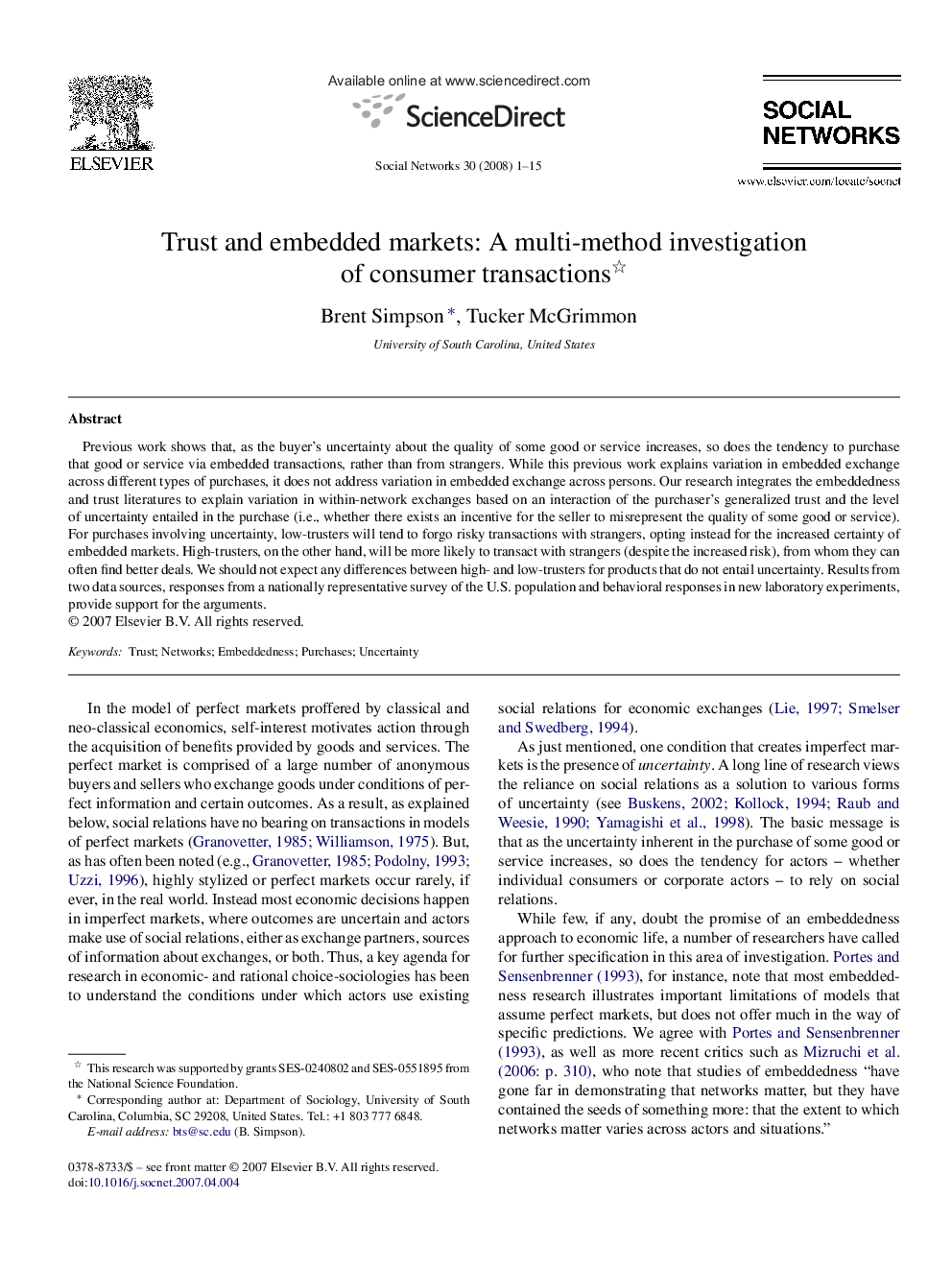| Article ID | Journal | Published Year | Pages | File Type |
|---|---|---|---|---|
| 1129611 | Social Networks | 2008 | 15 Pages |
Previous work shows that, as the buyer's uncertainty about the quality of some good or service increases, so does the tendency to purchase that good or service via embedded transactions, rather than from strangers. While this previous work explains variation in embedded exchange across different types of purchases, it does not address variation in embedded exchange across persons. Our research integrates the embeddedness and trust literatures to explain variation in within-network exchanges based on an interaction of the purchaser's generalized trust and the level of uncertainty entailed in the purchase (i.e., whether there exists an incentive for the seller to misrepresent the quality of some good or service). For purchases involving uncertainty, low-trusters will tend to forgo risky transactions with strangers, opting instead for the increased certainty of embedded markets. High-trusters, on the other hand, will be more likely to transact with strangers (despite the increased risk), from whom they can often find better deals. We should not expect any differences between high- and low-trusters for products that do not entail uncertainty. Results from two data sources, responses from a nationally representative survey of the U.S. population and behavioral responses in new laboratory experiments, provide support for the arguments.
